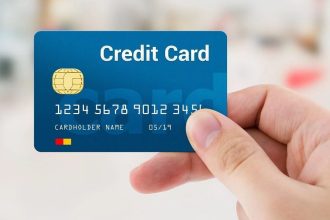A personal loan has evolved into a handy and convenient funding option since it can be availed instantly with nominal documentation. Most quick personal loans are unsecured; therefore, borrowers do not need to put up any asset as collateral to avail these loans, thus further reducing the hassles of verification and approval.
However, borrowers should consider the following things before applying for an instant personal loan –
- Interest rates –
Since personal loans are collateral-free advances, the risks associated with them for the lender are also high. As a result, they charge high interest rates on these advances as compared to secured funding options.
Therefore, before availing a personal loan, you must check the interest rates charged by the lender. Furthermore, you should compare different lenders to check the lowest interest rate on a personal loan.
Also, as these rates are affected by various factors like eligibility, borrowers can also leverage those factors to negotiate for better rates.
- Associated fees –
Apart from interest rates, you should also check the associated fees charged by your lender when you opt for a quick personal loan. The total cost of all these charges, along with interest rates, can be quite substantial if not selected properly. Therefore, you should know about the fees and charges applicable to your loan so that you can plan your finances accordingly.
Some of the fees that lending institutions levy on these loans are processing fees, penal interest, EMI bounce charges, document/statement charges. Apart from these charges, some lenders may charge a specific amount as part-prepayment or foreclosure fees. Additionally, you should also make sure that the lending institution does not levy any hidden charges.
- Eligibility criteria –
Individuals planning to opt for a quick personal loan must also go through the eligibility criteria as specified by the lending institution. It is vital to fulfil them as your loan application may get rejected if you do not satisfy the eligibility conditions. The primary eligibility requirements are as follows –
- Applicants must be residing citizens of India.
- They should be within 23–55 years of age.
- Should be salaried individuals employed at a reputed MNC, public or private company. However, the minimum salary required to apply for a personal loan will vary based on the city of residence.
You can also use a personal loan eligibility calculator to check the loan amount you can qualify for. To use the calculator, you need to enter the following details –
- The current city of residence
- Date of birth
- Monthly income
- Monthly expenses
Must Read: 8 Things to Know Before You Apply for a Personal Loan for Emergency
- Documentation – Borrowers must also check the important documents required while applying for a quick personal loan. The list of necessary documents have been given below –
- KYC documents such as Voter ID, PAN, Aadhaar or any other officially valid documents.
- Proof of income such as salary slip for the last two months, salary account statements for three previous months, etc.
- Employee ID card.
Additionally, some lending institutions such as Bajaj Finserv also provide pre-approved offers for a smooth and hassle-free application processing. Apart from personal loans, such offers can be availed on other unsecured credits like business loans, credit cards, etc. You can check your pre-approved offer by entering your name and contact information.
In such an instance, an applicant can apply for a personal loan without documents.
- Repayment capability –
Borrowers must also consider their repayment capacity before opting for a personal loan to avoid falling into a debt trap.
You can use online tools like the personal loan EMI calculator to check the most affordable EMI option for you. To do so, enter different loan principal and tenor values and compare the EMI amount accordingly.
- CIBIL score –
Credit score or CIBIL score is a numerical representation of one’s creditworthiness, which is derived based on their credit history. Lenders use this score to assess a borrower’s repayment habits and the ability to repay the loan in time. Since it is one of the essential parameters based on which lending institutions sanction a personal loan, applicants must check their credit or CIBIL score before opting for a quick personal loan.
High CIBIL score suggests to lenders that the borrower can handle his/her credit responsibly, which improves loan approval chances. A credit score of 750 or more is considered favourable for a personal loan.
Borrowers should also know the benefits of personal loan before applying. These loans have no end-use restriction; therefore, they can be used to meet various funding requirements such as medical emergency, higher education funding, wedding expenses, among other benefits.







